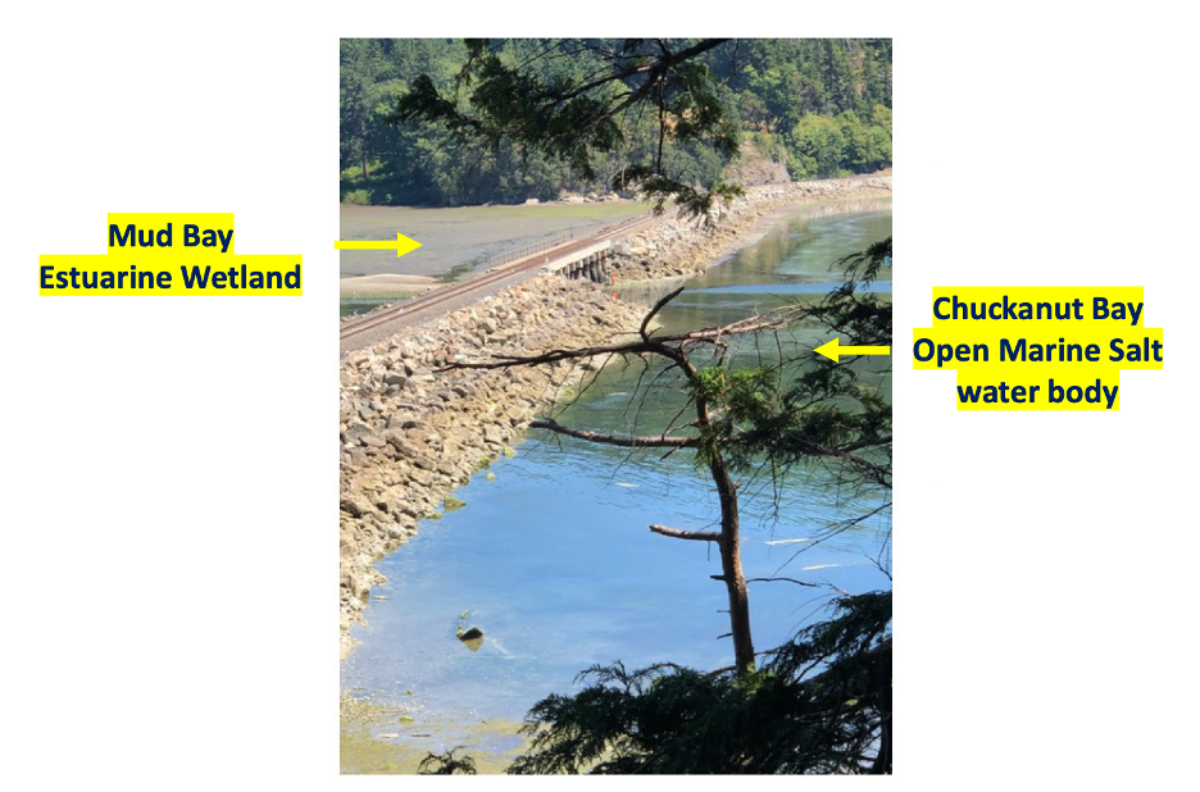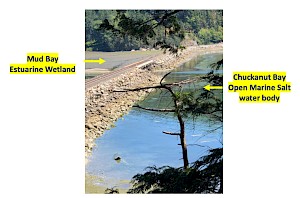Mud Bay: A Tragedy of the Commons?

Mud Bay: A Tragedy of the Commons?
Mud Bay: A Tragedy of the Commons?
My original article revealed a plan that private developers are proposing to build The Woods at Viewcrest along the cliffs and shoreline of North Chuckanut Bay, locally referred to as Mud Bay. Plans are to create 38 residential lots within and along the North Chuckanut Bay cliffs. However, newly adopted urban infill development regulations allow the owner of each of these newly created lots to construct multifamily housing with four units. The city is also currently updating its accessory dwelling unit (ADU) regulation that will allow each owner to construct two ADUs in addition to the fourplex, increasing the potential density to 228 residences for the proposed subdivision. None of these units will be required to provide low-income housing. The support and approval of this project by Bellingham city planners represents a classic example of the "tragedy of the commons,” which is what may lie ahead for Mud Bay.
The “tragedy of the commons” refers to a situation in which individuals, acting in self-interest, are allowed to exhaust, deplete, and destroy a shared resource to the detriment of the whole group. Overfishing is a good example: individuals act in their own self-interest when they deplete a fish population that is a shared resource for many.
The proposed Woods at Viewcrest subdivision project exemplifies the "tragedy of the commons" concept with individual gain, in this case development profit, ravaging a shared public resource: Mud Bay waters, shorelines, and habitat. Mud Bay is a valued and widely enjoyed public resource that is about to be harmed by the actions of self-interested parties. We, as “the many,” must oppose this project in order to protect our collective interests. At a minimum:
- Developers must be required to provide an unbiased and thorough Environmental Impact Statement (EIS).
- The City must require a revised project proposal addressing EIS-identified adverse impacts.
A county-wide community group has filed an appeal to reverse the city’s EIS determination and REQUIRE the city to complete a comprehensive environmental impact assessment and statement. A hearing on this issue will come before the city’s hearing examiner to decide whether the city will be legally required to address and comprehensively evaluate the proposed project’s environmental impacts. This hearing will be held during week of January 12-16, 2026.





4 Comments, most recent 1 day ago